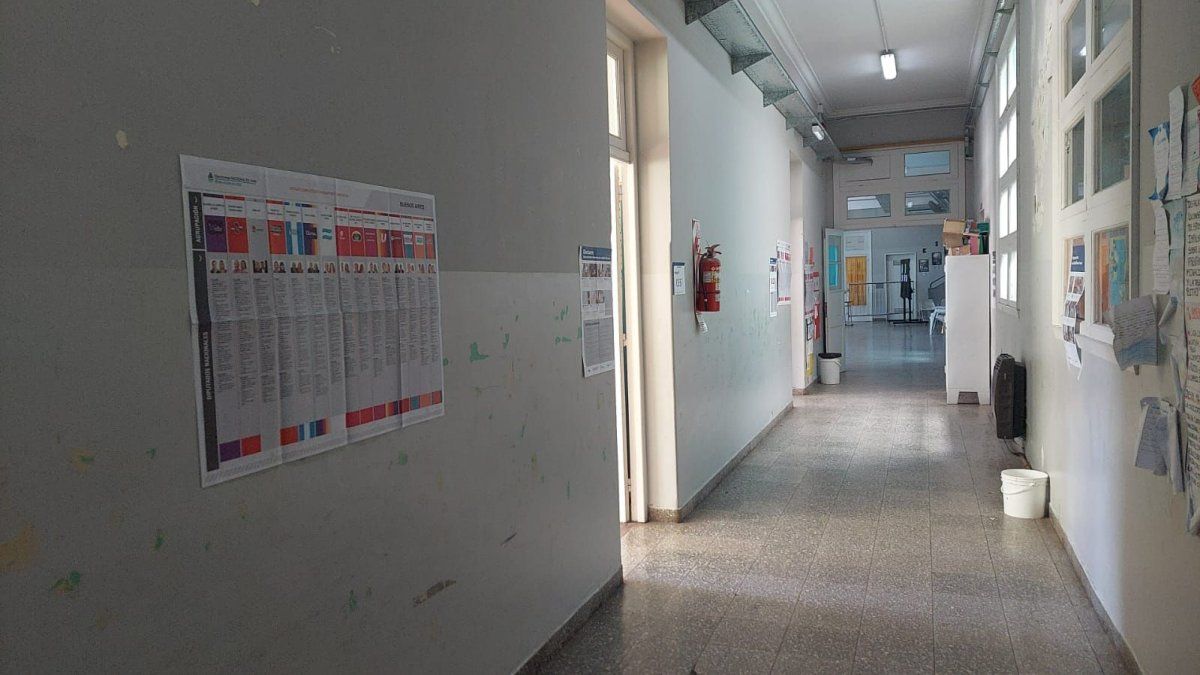On Sunday night, the headlines of the main Argentine media coincided in the same triumphalist melody: “Historic victory of La Libertad Avanza”, “The people chose change”, “Milei consolidates his popular leadership”. The media story, constructed in record time, erased in a couple of hours what arithmetic had made evident; less than three out of every ten Argentines eligible to vote They supported LLA with their vote, a political project that had explicitly promised adjustment, recession and dismantling of the social State. But statistics, when told in an epic tone, ceases to be a number and becomes a belief. In that moment he was born one of the most sophisticated political fictions of recent Argentine democracy, that of 27.27% as a “popular mandate”.
The operation is as simple as it is effective, the real denominator is omitted. We talk about “percentage of valid votes” and not the percentage of the electoral rolltransforming minority support into a supposed national majority. Arithmetic fiction is the mother of all legitimacy. As Ruth Sautu well recalled, every empirical interpretation is mediated by a “theoretical apparatus that organizes data”. In Argentina 2025, that apparatus was media, financial and discursive. The number was amputated from its context and returned as a symbol of democratic legitimacy. The docile analysts accepted the 27.27% as if it were 52%.and the country, exhausted by the crisis, accepted the story as a symbolic truce; “Let them govern, we have already suffered enough.”
In that resigned gesture hides the logic of ideology according to Slavoj iek. Ideology does not consist of “not knowing”, but precisely in “know it, but do it anyway”. The voter, the journalist, the politician and even the common citizen know that the supposed victory is mathematically false; however, they act as if was true. Because the truth – like inflation or the parallel dollar – produces more anguish than consolation. Thus, the story of the “popular mandate” works as a collective anesthesia; If we repeat it enough, perhaps reality will bow before television statistics.
The fiction of triumph is not sustained only with numbers, but with moral metaphors. Since 2015, and with renewed intensity since the rise of the libertarians, the Argentine neoliberal discourse was structured as a certainty of sacrifice: “we must suffer now to be free tomorrow.” The paradox – and therein lies the ironic edge of the phenomenon – is that this rhetoric combines the financial cynicism of Wall Street with the mystique of religion. Adjustment is presented as redemptive penance; poverty, as a moral test; and pain, as mystical pedagogy.
Since iek (2017), we know that contemporary ideologies no longer promise happiness, but rather significant suffering. The narrative of the 27.27% victory is precisely that; the institutionalization of pain with meaning. The campaign speeches and the first communications of the new government insisted that “people chose change knowing it would be hard,” as if the people had voted not out of hope, but out of enlightened masochism. The “people who choose the whip” is a symbolic invention that serves a dual purpose; legitimize the adjustment and deactivate criticism. Because, if “we knew what we were going for,” then suffering is no longer a failure of government, but rather a moral merit.
In that narrative, abstentionism – that 33% who did not vote– disappears from the map.
Not because it is irrelevant, but because its mere existence threatens the structure of the story. If a third of the country decided not to participate, the myth of consensus collapses. That is why the official statements spoke of “low participation” as if it were a technical problem, not a political one. The hopelessness It is renamed “democratic fatigue” and filed in statistical limbo. However, this abstention constitutes, as iek states, “the moment of breaking with the illusion”; when the subject, exhausted of promises, gives up the game because he no longer believes in the rules.
The spectacularization of politics is not new. From Debord to Bourdieu, the transition from political representation towards media representation of power. In the Argentina of 2025, this mutation reaches its extreme form; power not only needs votes, but rating. Legitimacy no longer comes from the number of ballots, but from the number of likes, minutes of air time or repetitions on YouTube.
Thus, 27.27% today becomes a “mandate” because television said it, and the algorithm amplified it. The modern citizen does not ask what happened after the victory; just enjoy the epic scene. The rest, management, the economy, poverty, is left out of the picture.
The most fascinating – and tragic – thing is that the new government reproduces the same theatricality that it denounces. Milei, like her idol Trump, does not govern; the government acts. Its main function is not to administer the State, but to sustain the illusion. In terms of Callon’s sociology, The sociotechnical networks that articulate politics and the market have moved to the spectacleand the voter becomes a “secondary actor in the financial device.”
The adjustment does not need to be effective; It just needs to be credible. The economy may collapse, but if the television story promises redemption, the fiction continues.
As iek ironically says, “True courage is not imagining an alternative, but accepting that there is none.”. The triumph of 27.27% It is precisely that; the staging of the hopeless courage of a nation that no longer expects alternatives.
From a more structural point of view, the conversion of 27.27% into a symbolic majority reveals the profound financialization of Argentine democracy. Politics no longer distributes power, but produces symbolic assets. Each vote behaves like a financial security; Its value lies not in what it represents, but in what others believe it represents. Thus, libertarian victory is negotiated as a political “derivative” of the “market of expectations”. The media, banks and polling companies operate as rating agencies for the national consensus. If the people believe that the government has legitimacy, then it does. He rating replaces suffrage as a measure of trust.
Here The analogy with the capital market is not accidental. As iek warns, “global capitalism does not need to believe in itself to function”. The same goes for neoliberal democracy; It does not need citizen participation, but rather circulation of the illusion of participation. 27.27% is enough to maintain the facade institutionalin the same way that a bank can continue operating with only 10% of its real deposits. Legitimacy, like liquidity, is a matter of trust – until it is exhausted.
The Argentine electoral result of 2025 must, then, be read as a case of “political leverage”; a minority government sustained by the media multiplication of its story. Each television appearance of Milei with Trump, each message from Bessent in “X”, each performative speech, functions as an issuance of symbolic debt that postpones the crisis of representation. And as in any speculative process, the bubble bursts when reality hits the screen. When adjustment stops being promise and turns into hungerthe passive despair of abstentionists could be transformed into active despair.
Modern democracy, iek wrote, is sustained by a delicate balance between the truth of the facts and the effectiveness of fiction. The Argentine case of 2025 is an extreme laboratory of this principle. 27.27% of voters became “the people”, and 33% of absentees became invisible. The myth of libertarian triumph is not a miscalculation; It is an ideological survival strategy. As the numbers adjust, the story expands. And so, the Argentina of hopeless courage continues to function; not because I believe, but because prefer not to know.
References: Callon, M. (1998). The Laws of the Markets. Blackwell. Sautu, R. (2005). Everything is theory: objectives and methods of social research. Lumiere. iek, S. (2017). The Courage of Hopelessness: Chronicles of a Year of Acting Dangerously. Penguin Books.
Doctor in Political Science, on YouTube: @DrPabloTigani, on X: @pablotigani
Source: Ambito
David William is a talented author who has made a name for himself in the world of writing. He is a professional author who writes on a wide range of topics, from general interest to opinion news. David is currently working as a writer at 24 hours worlds where he brings his unique perspective and in-depth research to his articles, making them both informative and engaging.




